Innovations in the Project Management 2023
Introduction
Once John F. Kennedy said, "Change is the law of life, and those who look only to the past and present are certain to miss the future." This is particularly relevant in the field of project management, where significant changes have taken place over the past years - from using simple stickers to corporate SaaS solutions. With the emergence of new technologies and paradigms, project management continues to undergo significant transformations, and organizations must keep pace with these changes, or else they risk experiencing failure.

Although the Agile Manifesto was created many years ago, its core principles such as "individuals and interactions over processes and tools" and "responding to change over following a plan" remain relevant. However, certain approaches and tools have evolved over time, becoming more sophisticated and better structured. The perspective on team interaction and the role of the Project Manager as a leader has also changed. Now, some responsibilities of the Project Manager can be partially performed by AI, and a Project Manager who doesn't develop soft skills is considered weak.
Let's take a look at some major changes and trends in Project Management, some of which are very closely related.
Implementation of AI technologies
A study by Cognilytica, an analytics platform, revealed that 86% of Project Managers approve the use of AI.
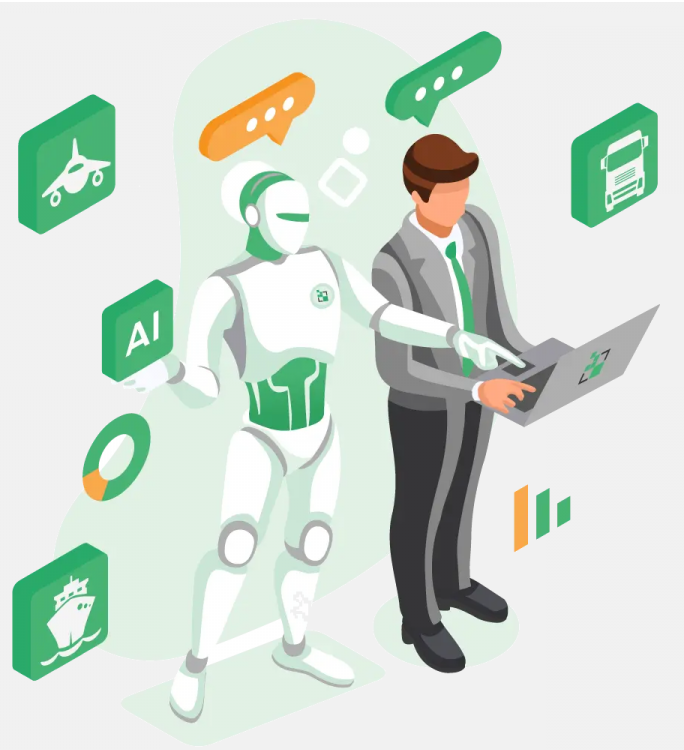 Those who have already implemented it in their projects report about 20% increase in productivity.
Currently, AI controls all stages of the project life cycle, including the initial stage, planning, implementation, monitoring, and completion.
One of the key advantages of using AI is the ability to process large volumes of data, including extensive project documentation, as well as performing routine tasks. According to Gartner's forecast, by 2030, AI will be able to automate up to 80% of the Project Manager's routine work. Companies that leverage AI not only gain the ability to automate various processes but also obtain accurate data on project expenses, progress, and visualization.
Those who have already implemented it in their projects report about 20% increase in productivity.
Currently, AI controls all stages of the project life cycle, including the initial stage, planning, implementation, monitoring, and completion.
One of the key advantages of using AI is the ability to process large volumes of data, including extensive project documentation, as well as performing routine tasks. According to Gartner's forecast, by 2030, AI will be able to automate up to 80% of the Project Manager's routine work. Companies that leverage AI not only gain the ability to automate various processes but also obtain accurate data on project expenses, progress, and visualization.
Benefits that a project manager will gain from implementing AI:
- Assisting in decision-making: AI can not only process data and automate routine tasks but also provide recommendations to project managers based on the "human factor." For instance, AI can suggest which resources are best suited for a task, identify potential risks during project implementation, and determine the optimal number of meetings to maximize team productivity. Project managers can leverage AI platforms such as GiniMachine, WorkStreams.ai and ClickUp to access these recommendations. AI can also visualize data through infographics, diagrams, and charts to provide more accurate forecasts.
- Machine learning-based forecasting: AI can utilize statistical data and machine learning technologies to predict the success of projects, going beyond providing recommendations. AI can assess the project life cycle and forecast, for example, when a task will be completed, the likelihood of meeting KPIs on time, suggest a new deadline for achieving KPIs, and even predict whether the initially allocated budget is sufficient. Project managers can use the platforms mentioned earlier to forecast project outcomes.
- Error prevention: Nowadays, an increasing number of project managers are utilizing AI technology to prevent errors at early stages of project work. The idea is for AI to study the life cycle of specific successful projects within the company and then analyze the work of another project, including team interactions, documentation, task flows, and reporting. By learning from historical data of both successful and unsuccessful projects, AI can alert the project manager to potential failures at specific stages of work.
- Enhancing project team efficiency: Survey results have shown that many companies have already incorporated
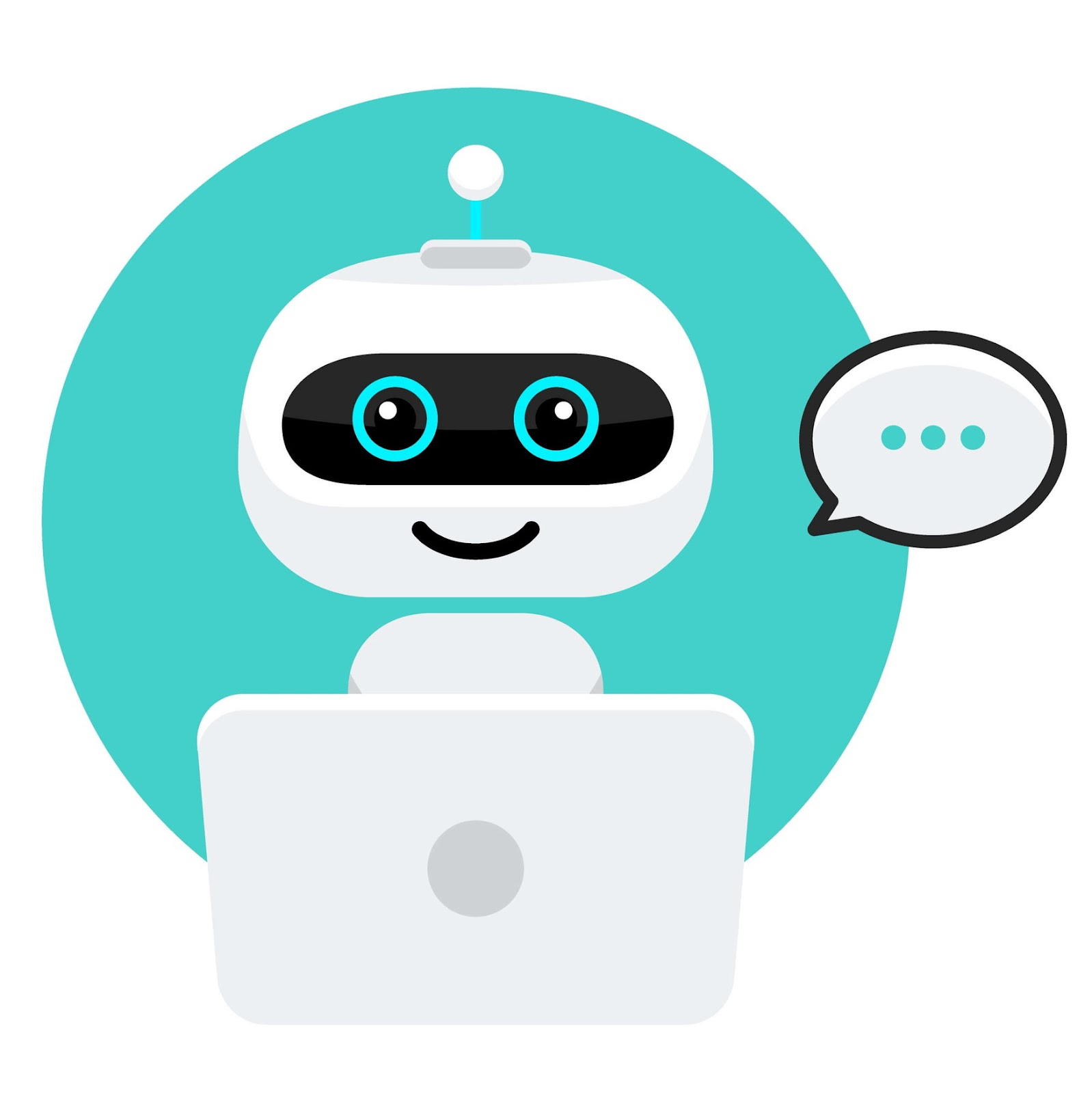 or plan to incorporate the use of chatbots in their strategies, as they can increase project efficiency and team engagement. Chatbots are particularly suitable for handling labor-intensive and mundane administrative tasks, such as data management, schedule creation, documentation management, and invoicing. They also help reduce internal communication time by connecting with team members through corporate messaging platforms like Slack. Chatbots can remind colleagues about tasks, inquire about task statuses, and request reports. For example, the bot Howdy automates task management, helps select tasks, tracks progress, and distributes reports among team members and the project manager. The chatbot Meekan enables scheduling meetings and one-to-one calls with the team.
or plan to incorporate the use of chatbots in their strategies, as they can increase project efficiency and team engagement. Chatbots are particularly suitable for handling labor-intensive and mundane administrative tasks, such as data management, schedule creation, documentation management, and invoicing. They also help reduce internal communication time by connecting with team members through corporate messaging platforms like Slack. Chatbots can remind colleagues about tasks, inquire about task statuses, and request reports. For example, the bot Howdy automates task management, helps select tasks, tracks progress, and distributes reports among team members and the project manager. The chatbot Meekan enables scheduling meetings and one-to-one calls with the team.
Working with remote/hybrid teams
Today, remote collaboration has become the new standard, and many employees have transitioned to remote or hybrid work formats.

This project management model has numerous advantages, such as:
- Work-life balance: It enables achieving a balance between work and personal life.
- Increased employee efficiency: It boosts employee productivity and reduces the need for business trips.
- Cost savings: It reduces project expenses by leveraging technologies that facilitate instant communication with clients, project team members, and other stakeholders.
However, remote work is not without its drawbacks, the main ones being communication challenges, time zone differences, and a decrease in motivation among some employees.
To address the issue of misunderstanding, it is beneficial to foster a team culture based on open communication in informal settings and to schedule regular video conferences.
The lack of daily interaction with colleagues in an office environment leads to a decrease in motivation among remote workers. To address this issue, project managers should have clear expectations and consistently communicate important tasks that need to be accomplished. This way, feedback will be established, and employees will feel needed and valued within the team, serving as an additional source of motivation for their work.
Project managers can improve managing remote teams by developing their skills as a virtual leader and mentor. This can be achieved by creating new mentoring formats such as remote webinars and seminars for employees. Additionally, building trust among all team members and developing a plan to address team burnout is crucial. According to a Gallup study, 80% of employees sometimes experience burnout.
The prioritization of soft skills and emotional adaptability
In the past, the value of project managers was determined by their certifications and skills in implementing various methodologies. However, today, more and more organizations are placing greater importance on soft skills, as these skills define employees as team members.
Soft skills include qualities such as emotional intelligence, leadership, motivation, self-organization, resilience, adaptability, and teamwork. Unlike hard skills, these skills have only recently been valued in the job market. While it is important how a person adapts to work processes and utilizes new tools, it is also crucial to have effective communication within a team.
The project manager bears primary responsibility for internal communication and the team atmosphere, which is why emotional adaptability is a key skill. Essentially, the work of a project manager involves a deep understanding of people. To lead projects to success, the manager must efficiently manage the team's resources, which requires a thorough understanding of each team member.
Additionally, with the increase in remote workers, the ability to communicate effectively and possess emotional intelligence has become even more valuable.
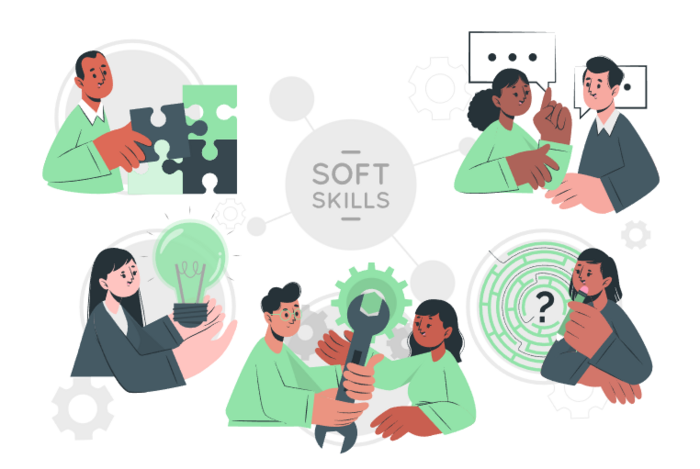
According to research conducted by American professor Gerald J. Mount, 69% of a project manager's skills are related to emotional adaptability and the ability to recognize emotions, while only 31% are related to professional experience. Simultaneously, business trainer and researcher Patrick Mayfield found that top project managers spend between 60% to 80% of their working time interacting with team members. Thus, the ability to sense emotions and empathize with employees is a crucial skill for effective team management.
This trend in project management can be explained by the fact that AI-based systems can effectively handle more complex technical aspects of project management. This, in turn, allows managers to focus on other tasks where interpersonal communication skills are crucial.
Currently, it is highly important for project managers to improve their interpersonal skills, such as conflict resolution, stakeholder management, negotiation skills, mentoring, decision-making, and team building. Developing these skills enables project managers to work more effectively and bring greater value to their companies.
Let's list the main advantages that a Project Manager will gain from the skill of emotional adaptability:
- Creating a productive and positive team atmosphere: The project manager is responsible for maintaining employee motivation and ensuring proper task allocation. Managers with high levels of soft skills are capable of deeply analyzing the potential of their colleagues and effectively assigning tasks among them. Developing emotional adaptability helps the Project Manager enhance their leadership qualities. When a team is led by such a leader, it becomes more motivated, and employees feel a stronger connection to the project.
- Resolving conflict situations: The project manager with emotional adaptability skills can successfully resolve conflicts within the team, as they are able to accurately recognize the emotions of others. In case of difficulties, such a manager utilizes diplomatic skills and can view the situation from different perspectives.
- Flexible approach to project management and the ability to adapt to changes: A Project Manager with good emotional adaptability will not experience stress due to changes in the work process, as they always focus on their strengths. Such a manager does not let emotions affect them and can successfully adapt to new conditions.
Dave Birdsall, a senior manager at The Parker Avery Group, is an excellent example of using emotional intelligence in project management. He noticed an interesting trend related to daily stand-up meetings. He observed that these meetings are no longer just a means of tracking work issues but also provide an opportunity for people to connect with each other. This approach allows him to stay informed about what people are working on and ensure that their work-life balance is not compromised.
Hybrid approaches to project management
In project management, there is a new trend of moving away from a single management style. There are no longer "good" or "bad" methodologies and tools in project management. In the Global Trends in Project Management 2022 survey conducted by the IT platform ProjectManager, involving over 600 Project Managers, 60% of them stated that they use hybrid methodologies (Agile + Waterfall) or other combinations to manage projects. Current organizations no longer prioritize the use of Scrum or Kanban individually. Currently, there is no leading IT company that exclusively confirms the use of any specific framework.
The hybrid model is what brings projects, tasks, and employees together, helping businesses thrive. There is no one-size-fits-all approach like Kanban, Scrum, or any other methodology that suits all projects. Instead, it is necessary to create a unique approach for each project based on its needs and requirements. If a traditional method works well for the tasks, use it. However, if a hybrid model can yield better results, there is no need to be afraid of using it.
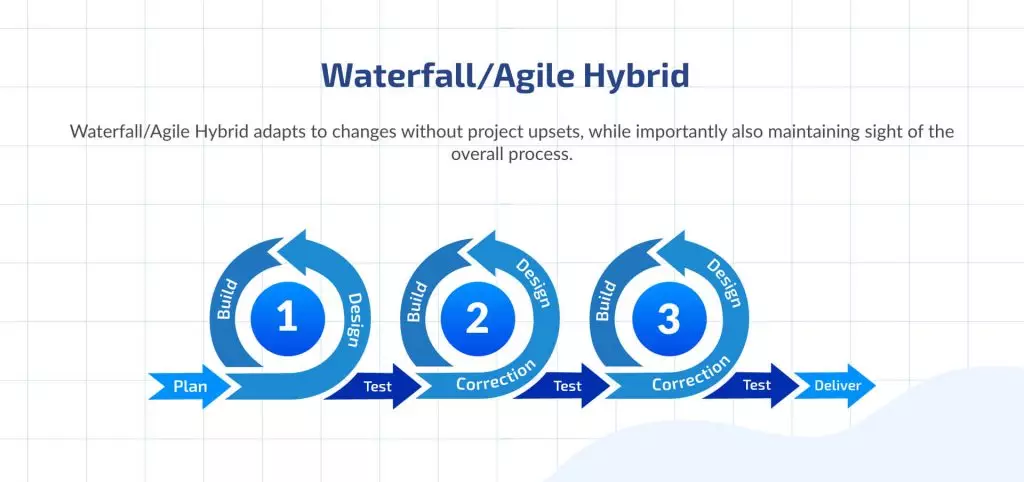
In recent years, the trend has been to use multiple tools and approaches within a single project. Project managers choose methodologies and services based on the project's tasks.
Here is a list of the five most popular and relevant project management tools:
- Jira - primarily used by technical development teams, this software tool offers excellent project planning and tracking features. With a wide range of add-ons and extensions, it allows for integration with other popular services among developers.
- Microsoft Project - helps managers control task execution and efficiently allocate resources. Its main working tool is the Gantt chart.
- Airtable - a cloud-based service for working with spreadsheets and databases. It enables linking tables to each other or third-party services and allows building code-free applications based on them.
- Smartsheet platform - a flexible and scalable service for project management. It provides a set of productivity-enhancing tools that meet all business needs. With this software, task management becomes easier, and any fragmentation is eliminated.
- Asana web and mobile application - provides collaborative work software, simplifying the management of multiple projects simultaneously, even with two or more teams involved. It ensures a comprehensive understanding of the progress and tasks for each project.
The use of visualization and task tracking tools significantly enhances project management efficiency. Such tools allow for tracking task progress and generating various reports essential for management. The ability to choose different tools for different tracking and management stages provides flexibility in selecting the optimal approach.
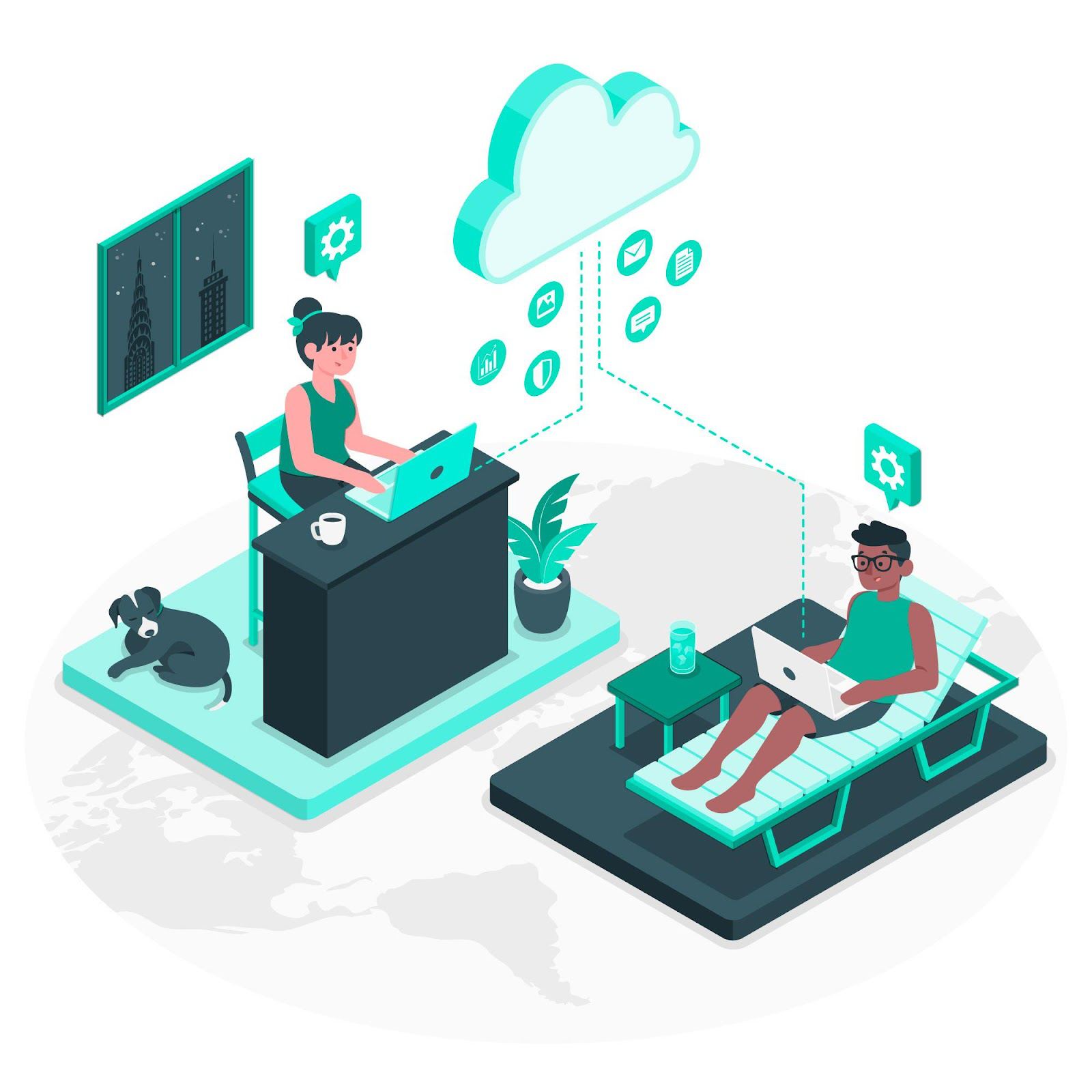 The use of cloud solutions
The use of cloud solutions
The demand for cloud computing is rapidly growing as more organizations transition to cloud technologies in search of cost-effective ways to expand their operations without compromising functionality and performance. This makes cloud computing an ideal solution. A solution that becomes a new corporate standard is called cloud-first. Thanks to it, team members can work from anywhere in the world, creating a secure space not only for data but also for employees.
Cloud solutions are an excellent option for collaborative work as they allow employees to work simultaneously within the project framework without compromising the intensity of the workflow and their productivity. Moreover, such solutions are typically easily integrated and adapted to the company's internal structure and needs.
The increasing popularity of remote and hybrid work models has also led to increased attention to cloud solutions, as they enable employees to work from anywhere without losing access to critical business applications. Additionally, cloud solutions have become more affordable and flexible, facilitating their implementation. Considering these changes, cloud solutions can become a new standard for effective project management for organizations worldwide.
Focus on cybersecurity
With the advancement of technology and digitization, there are increasing cases of information breaches, highlighting the need for data protection. According to statistics, 85% of all hacking incidents are related to human factors, and 61% are due to credential leaks. This underscores the importance of cybersecurity for clients. At the same time, companies need to strike a balance and provide easy access for authorized users.
According to Statista forecasts, the cost of cybercrime worldwide is projected to rapidly increase from $8.44 trillion in 2022 to a staggering $23.84 trillion by 2027. As organizations move towards digitizing their ecosystems and adopt remote and hybrid work models, cybersecurity becomes more critical than ever.

To protect an organization from various types of cyberattacks, it is necessary to develop an action plan in advance and provide training to personnel. Project managers can actively support cybersecurity initiatives by fostering a culture of awareness and collective responsibility. They can collaborate closely with IT, HR, and cybersecurity teams, implement cutting-edge practices, and conduct training for project groups. Tools such as role-based permissions for project management and others, though seemingly simple, can have a significant impact on protecting the organization and its data.
All these trends can also help project managers understand the measures they should take to enhance operational efficiency and prepare for potential security breaches. In the event of a cyberattack, managers must have a prepared response plan that needs periodic evaluation, comparing it to security benchmarks established earlier. Each project team member should undergo training to understand potential security risks and threats.
Conclusion
Technological progress has significantly influenced project management trends. The growing popularity and effectiveness of remote work systems, digitized management processes, and the need for cybersecurity have brought about significant changes. For example, remote work has become a new reality, and project managers need to focus on planning, regular communication with teams, and optimal process organization.
With the active integration of AI into project management, more attention will be given to interpersonal communication skills, which will be valuable for working with formal and informal teams. When selecting project management software, it is essential to include AI utilization in the list of requirements.
In recent years, classical approaches to project management have faced difficulties that require the development of new problem-solving methods. Agile methodologies, for example, have proven crucial for many companies, including the healthcare sector, and have helped successfully navigate the pandemic.
Project teams have faced unprecedented challenges in recent years, altering work methods on a global scale. Professionals working in project management or planning to engage in such activities must be adaptable, anticipate, and resolve any situation within the project's scope.
Published Jun 9, 2023